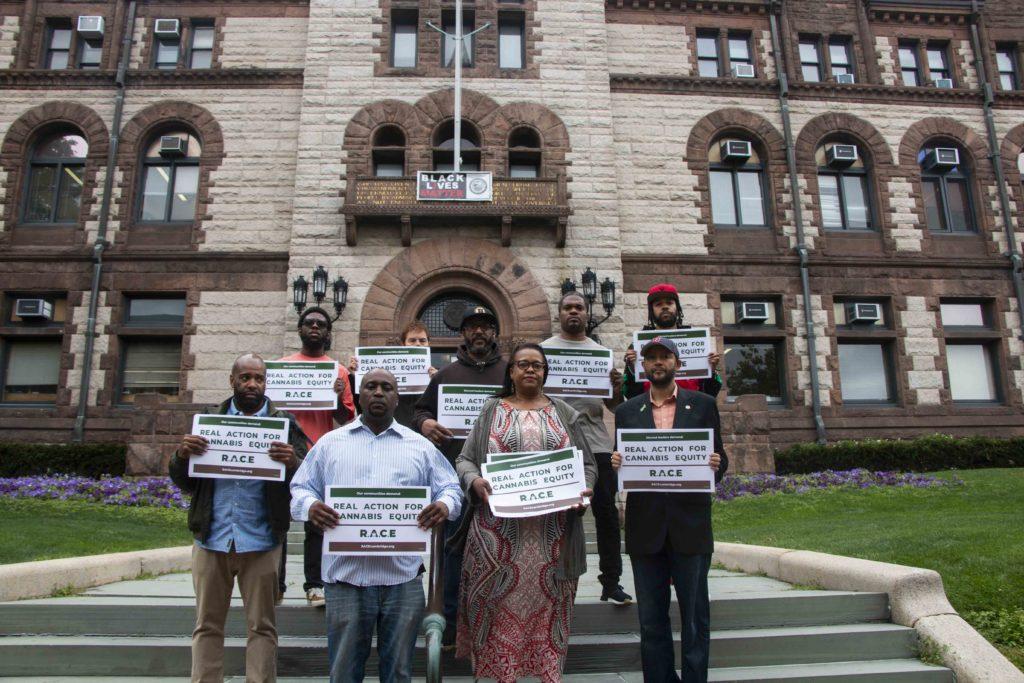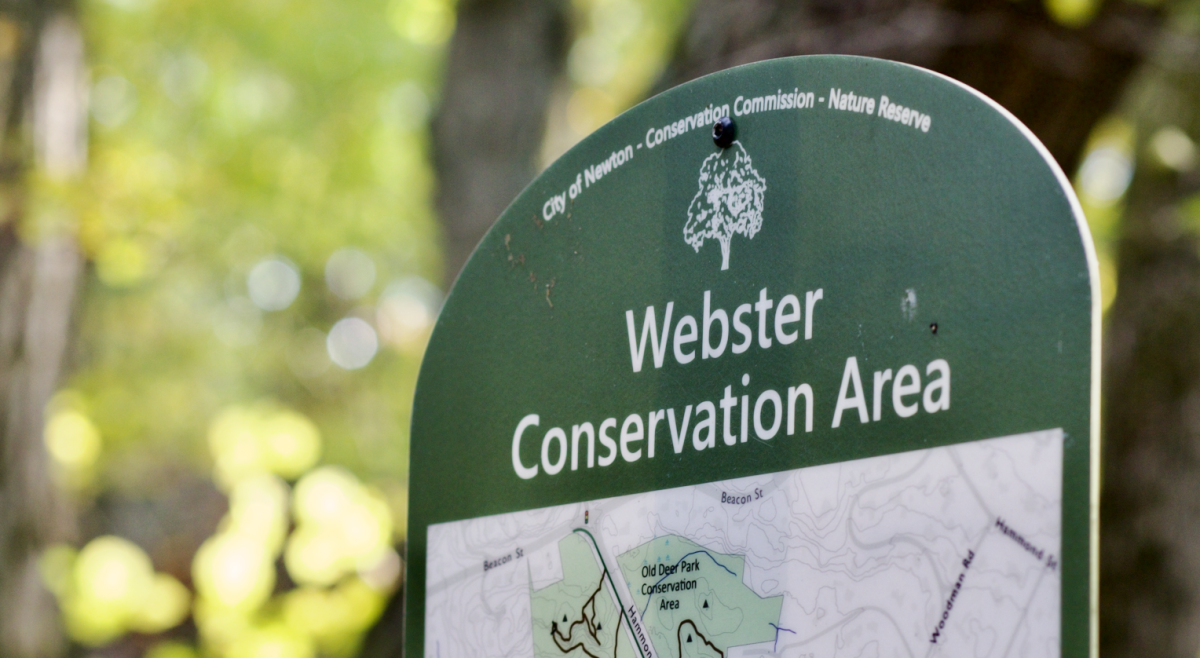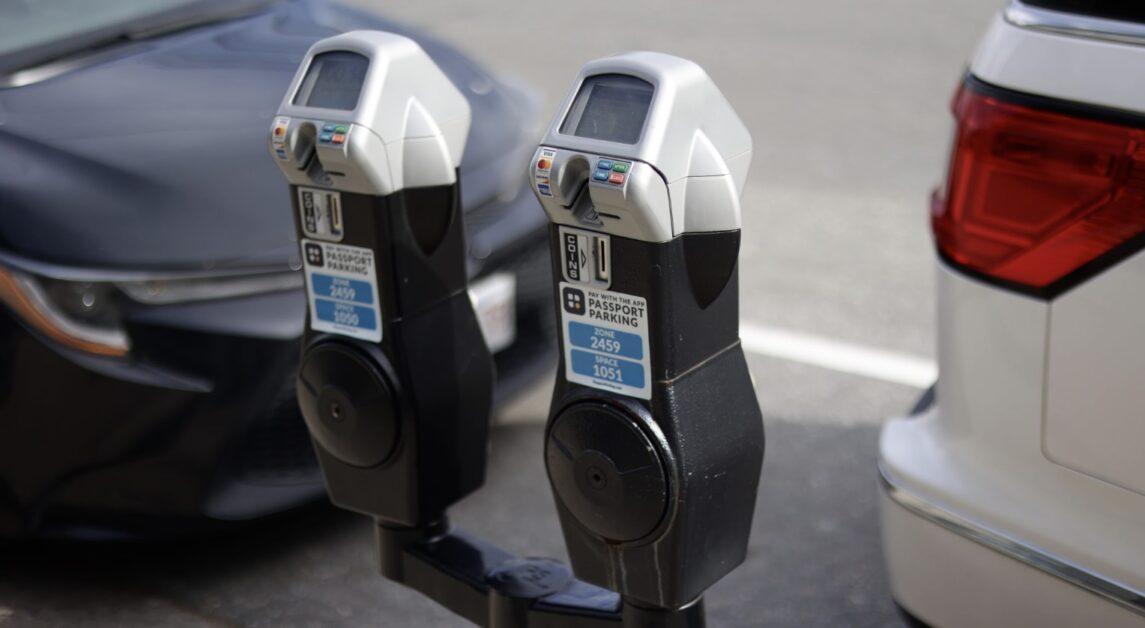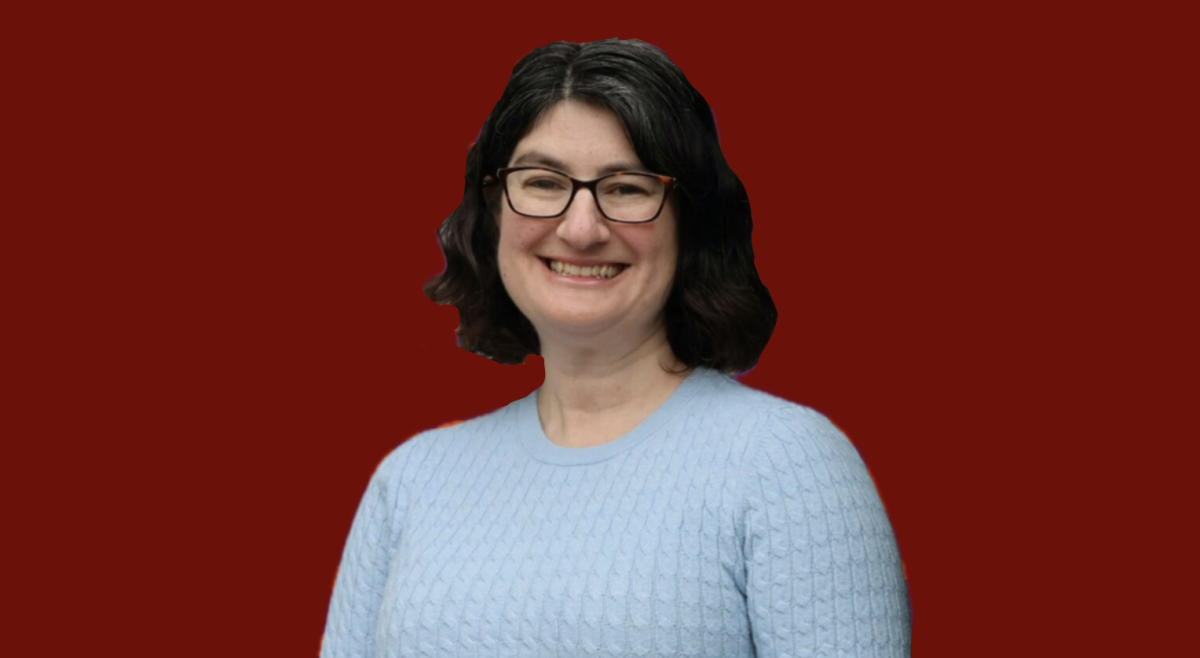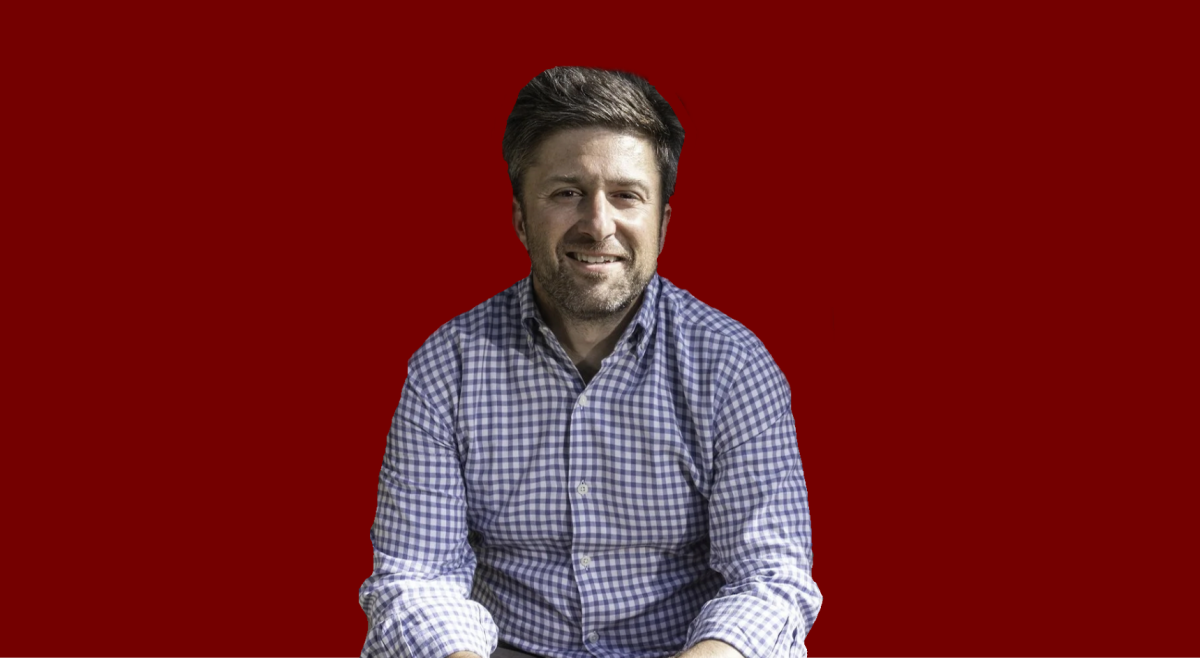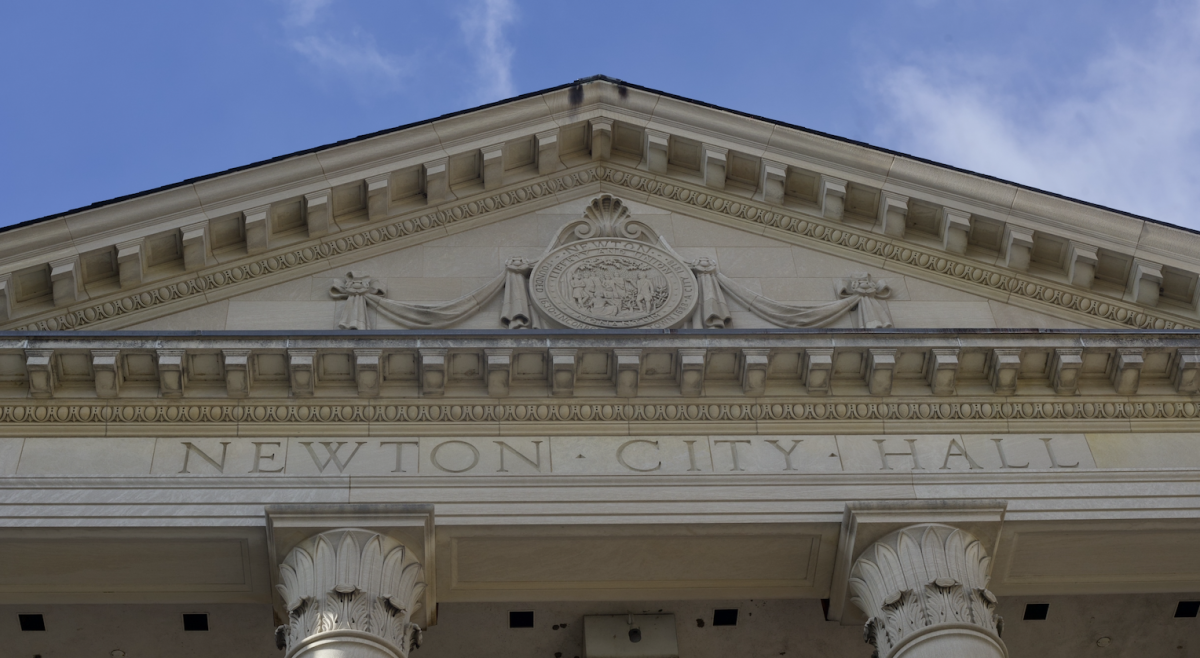The coalition dedicated to fighting cannabis license inequity stood outside of Cambridge City Hall in silent protest on Friday, one day after it announced its formation. The group of black marijuana entrepreneurs held signs that said “Our Communities Demand: Real Action for Cannabis Equity,” the name of the coalition.
“All we want is the same shot and the same opportunity and that’s what we’re pushing for,” said Taba Moses, a member of R.A.C.E.
The people who were once arrested and locked up for selling marijuana are now being denied the opportunity to sell it legally, he said. Granting economic empowerment applicants (EE) an opportunity to open stores before other applicants, incl uding medical stores, is a main goal for the group. People who have been disproportionately affected by marijuana enforcement can can qualify as EE applicants fit three of the six criteria outlined by the Cannabis Control Commission.
The six criteria include: the majority of ownership belongs to people coming from areas of “disproportionate areas of impact” for five of the last 10 years; majority of ownership held a previous position that served people disproportionately affected; 51 percent of employees reside in areas of disproportionate impact, increasing to 75 percent by the first day of business; at least 51 percent of employees or subcontractors have drug-related criminal records; a majority of the ownership is from “Black, African American, Hispanic, or Latino descent”; or owners can show serious experience in promoting the economic empowerment in areas of disproportionate impact.
“To see people that never took part, and that were lawyers and developers, all of a sudden see that they’re going to be first and lock us out of maybe one of the only things that can turn the needle on the economic disparity between white and black families,” Moses said. “We said ‘look, we can’t just stand by and watch that happen.’”
R.A.C.E. helps EE applicants apply and pay for a license in the city—one group, Pure Organics, has secured a location in Fenway and is in the process of applying for a license. The group is looking for another location in Cambridge.
“People of color in general have been affected by this at a disproportionate rate,” said Damond Hughes, the owner of Pure Organics.
“We don’t have a lot of equity in any industry in the city or in the country, for the most part, so this would be a great opportunity to give something back to people of color—at least give them an opportunity to have a part in this industry.”
City councilors Quinton Y. Zondervan—who was at the protest—and Sumbul Siddiqui have proposed an amendment to only allow EE applicants to apply for licenses for two years. It came out in May and is on the docket. It could be voted on at any time, Zondervan said.
“Prohibition, the war on drugs, has really badly impacted the black community and this is all about making sure that they have some equity and the opportunity to participate in this industry as we legalize it,” Zondervan said.
R.A.C.E. is currently drafting legislation—it isn’t releasing the details on what the legislation is or when it will be released.
“It’s about everyone,” Moses said. “Everybody should have a chance to be a part of this.”
Featured Image by Colleen Martin / Heights Editor

